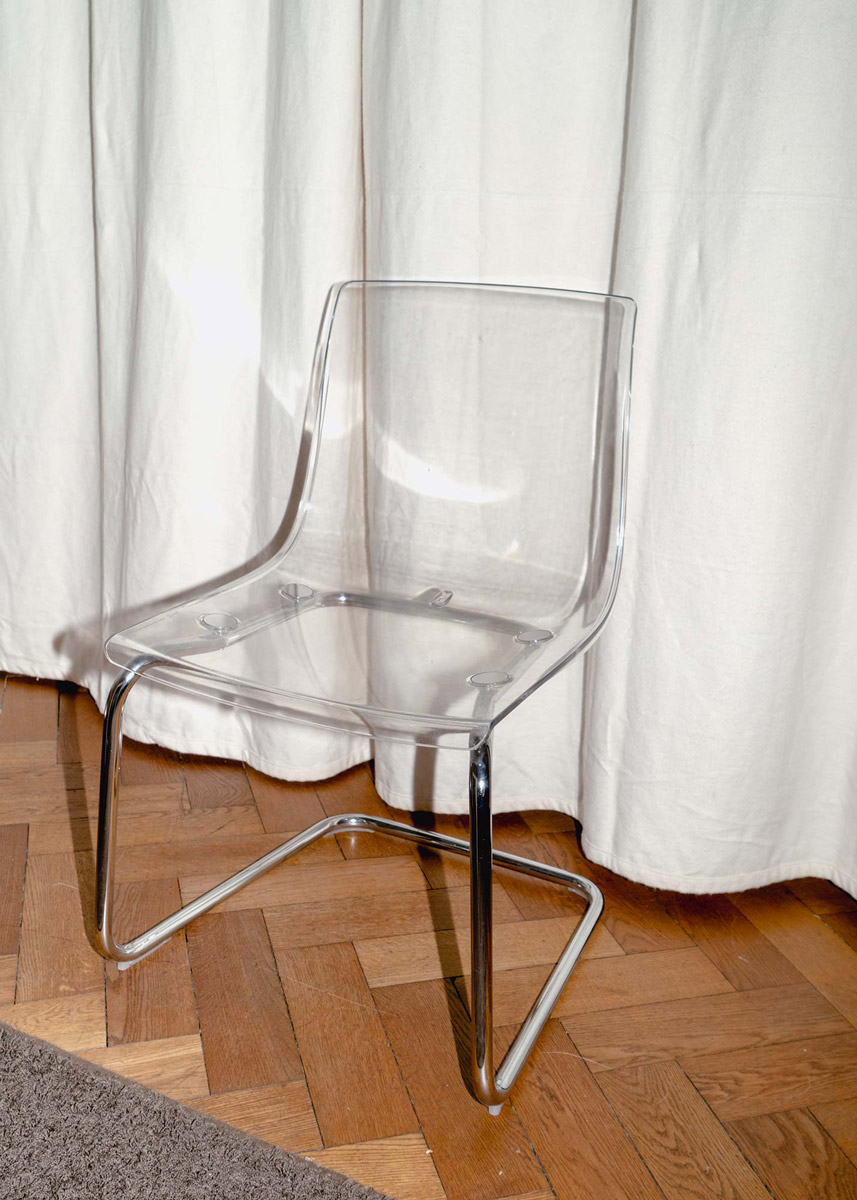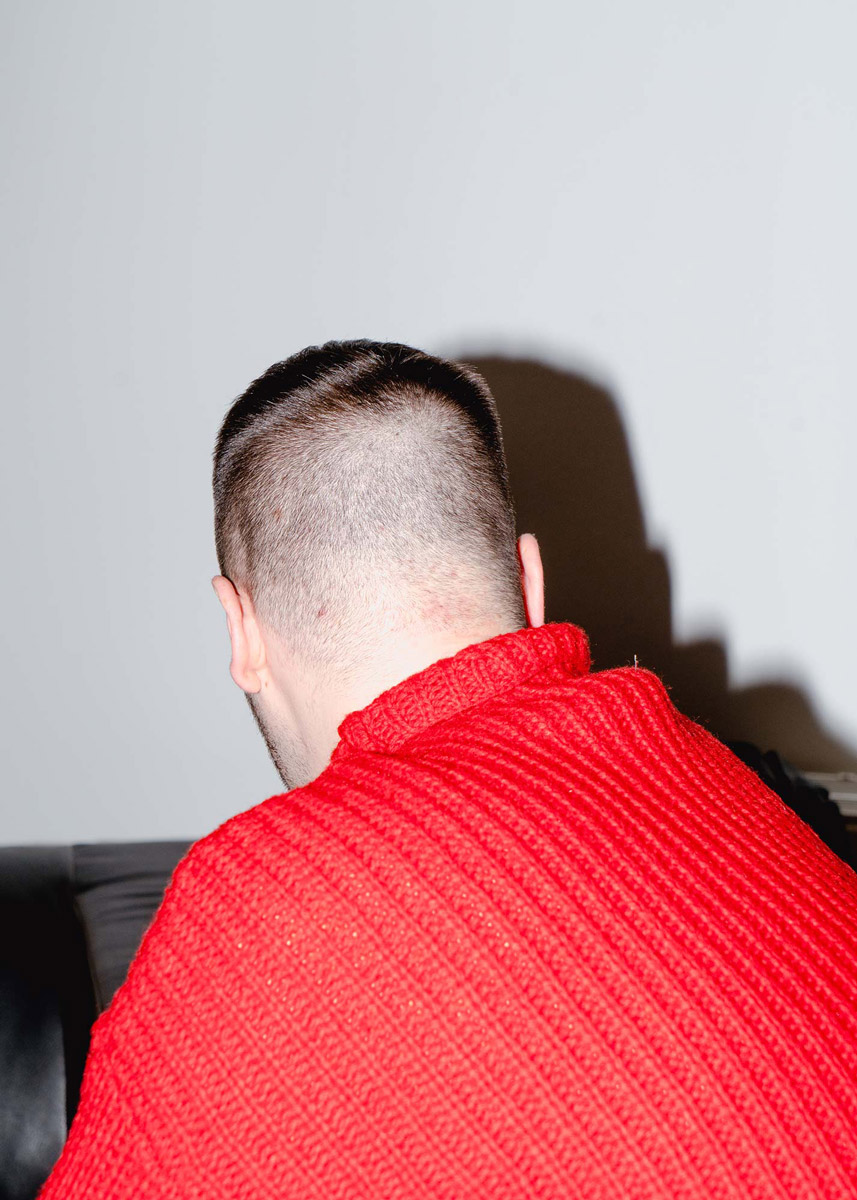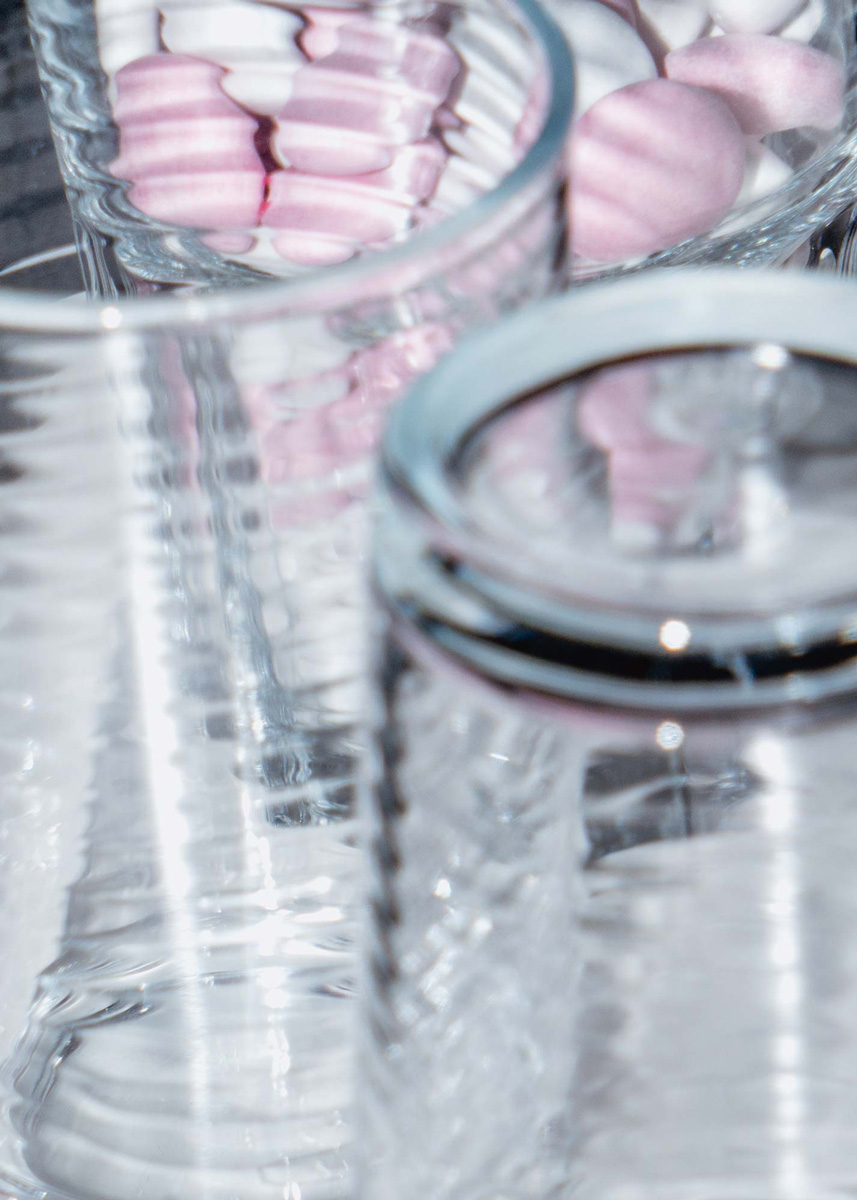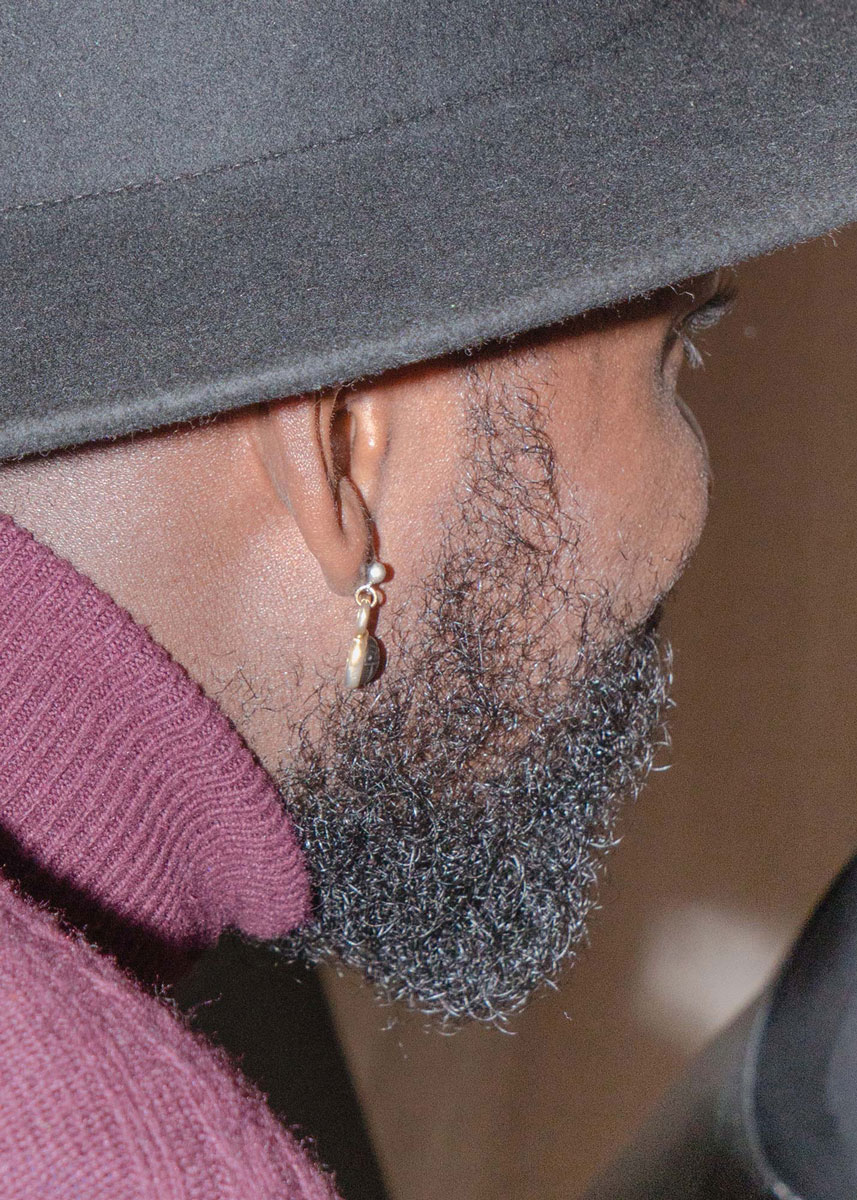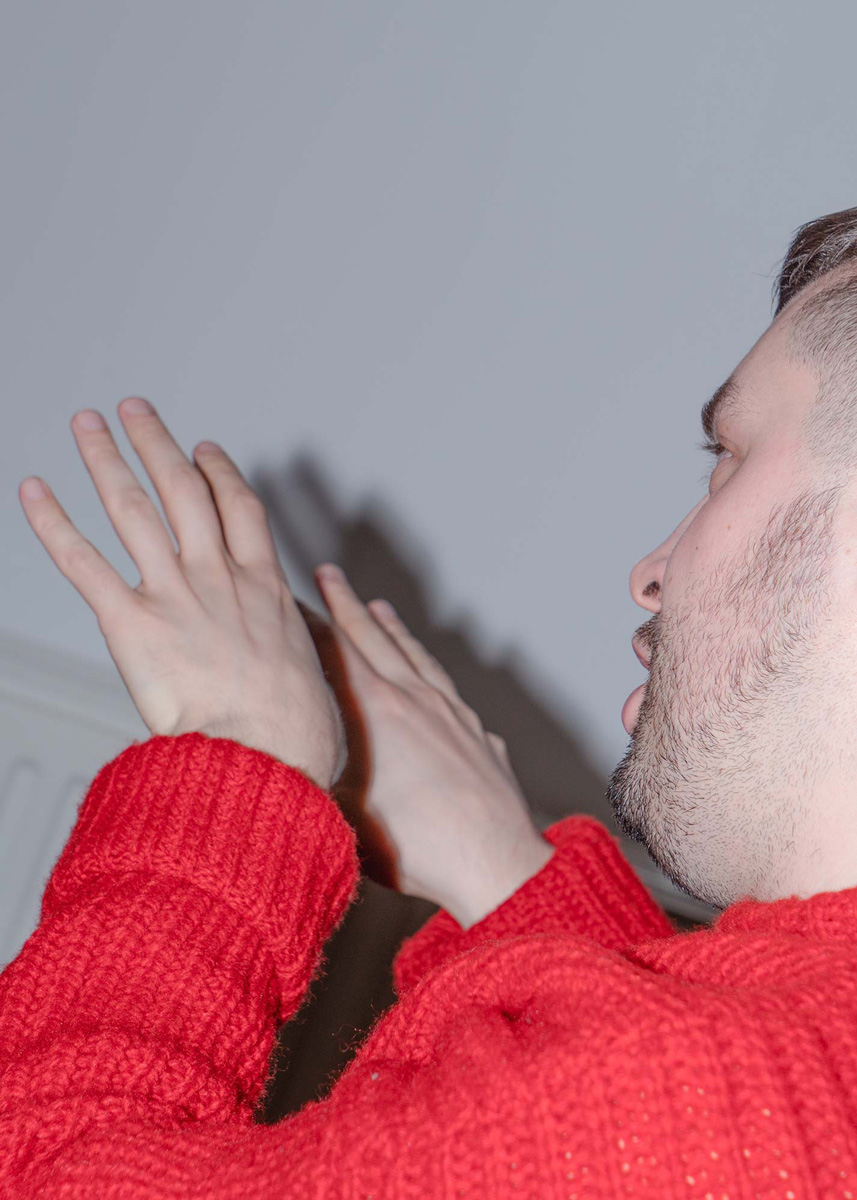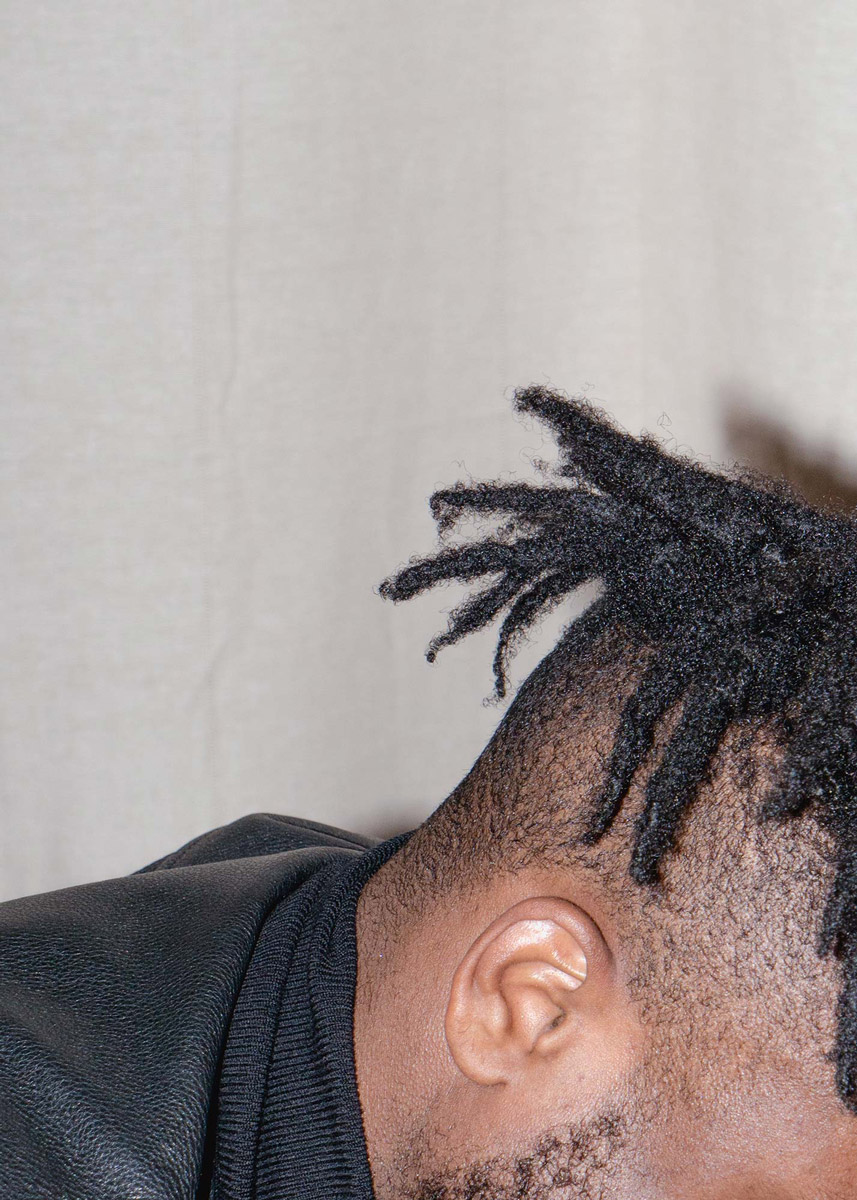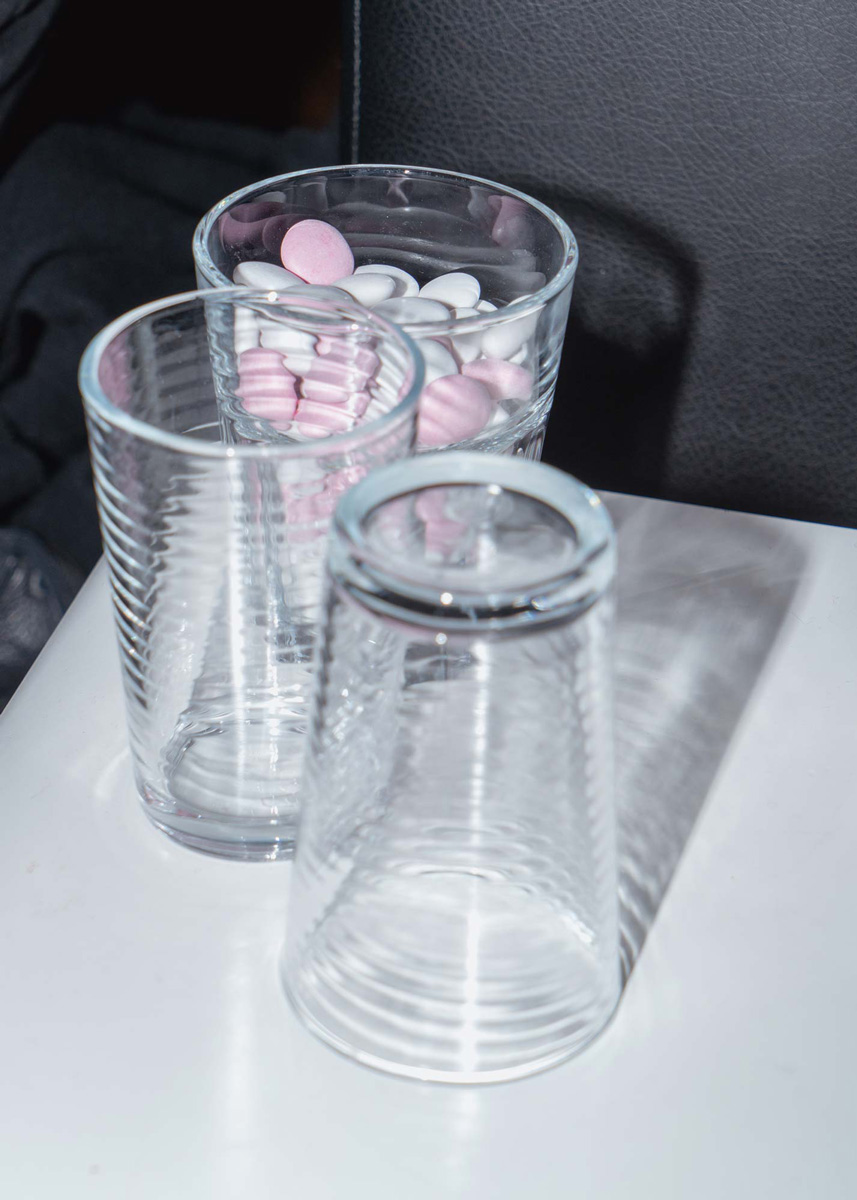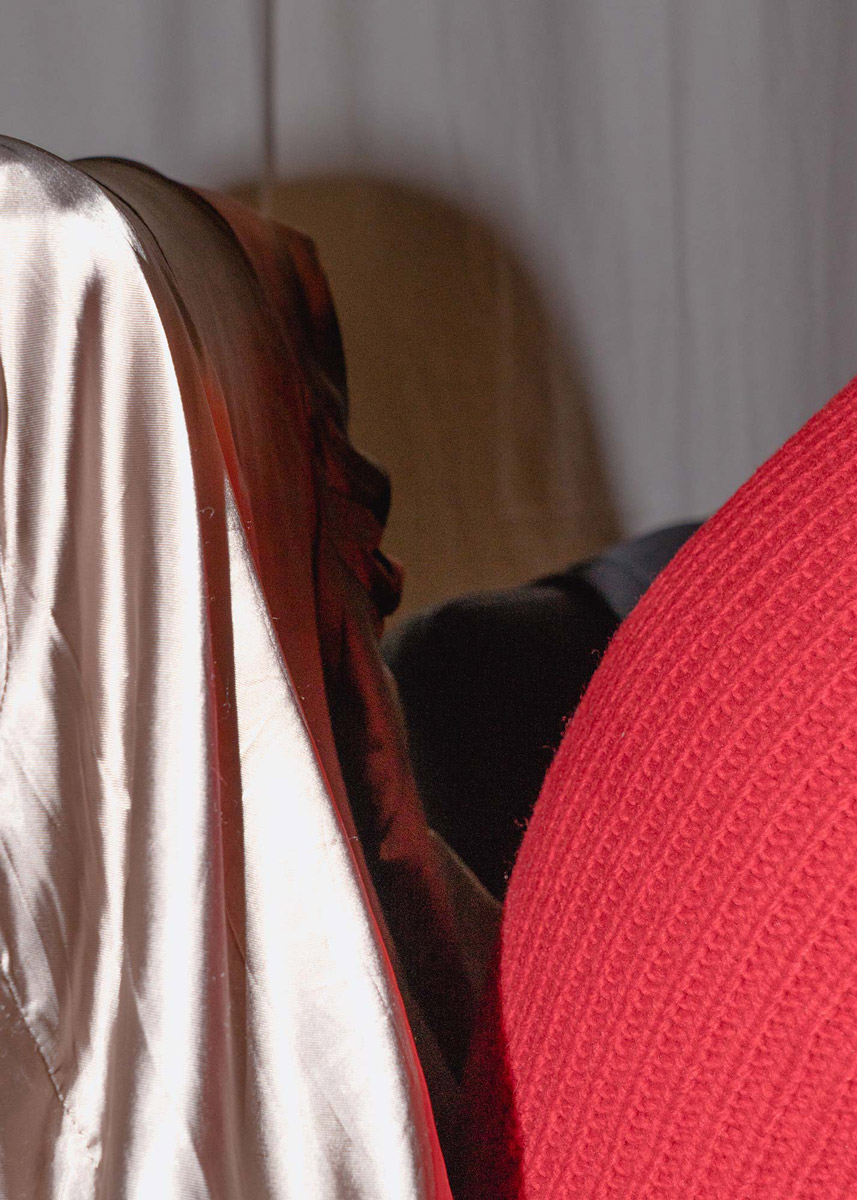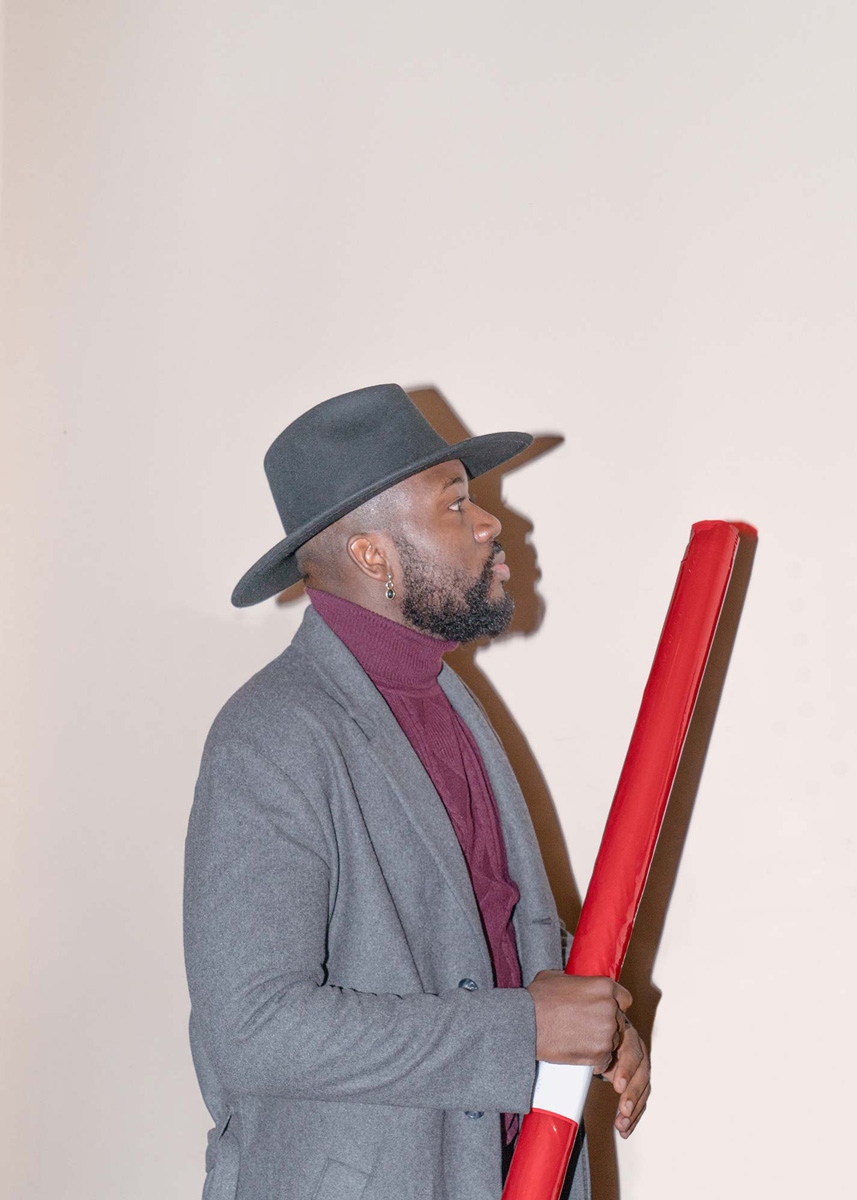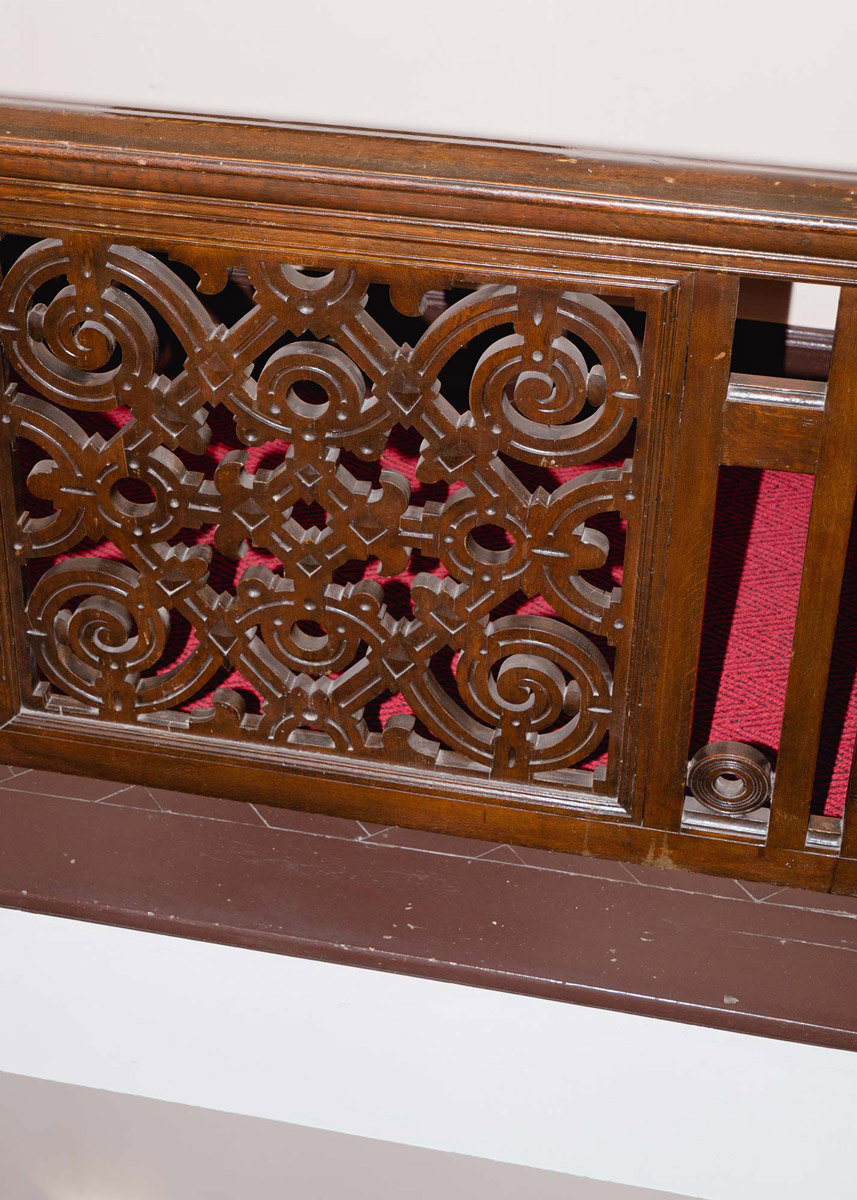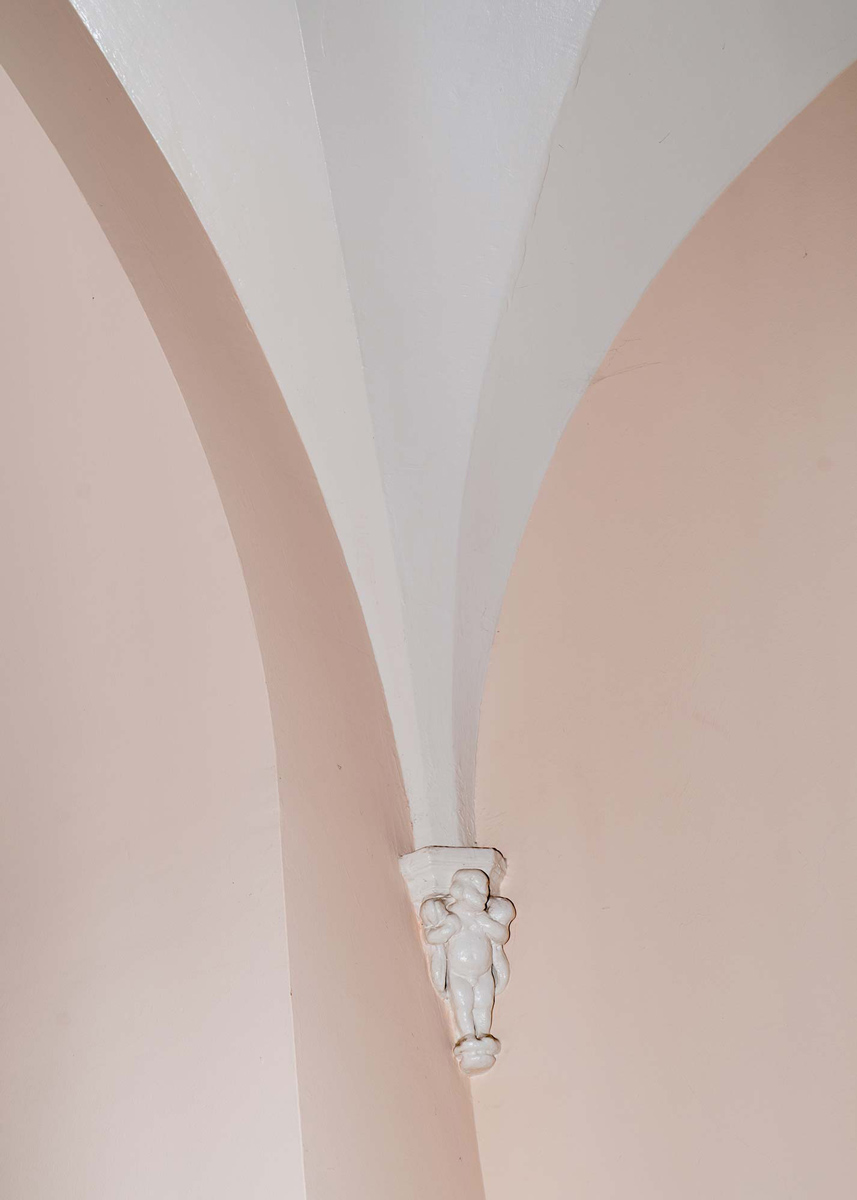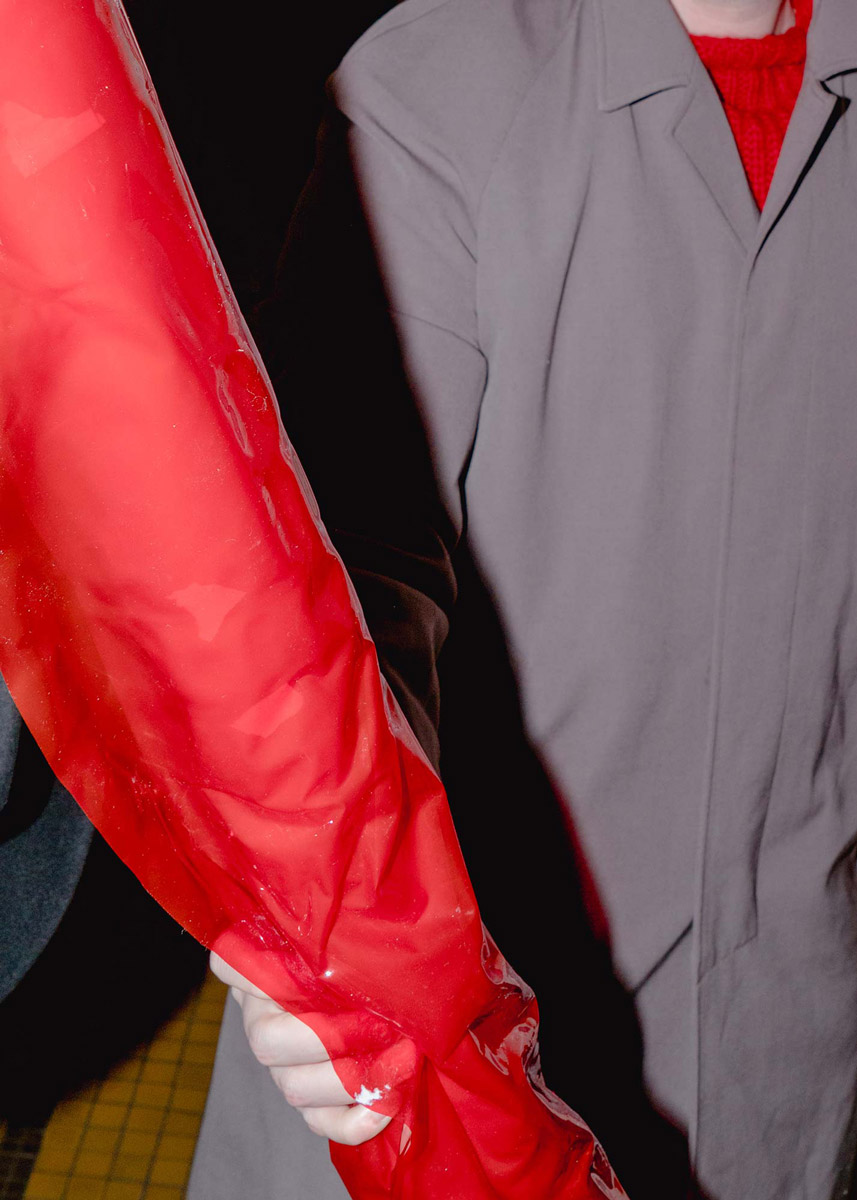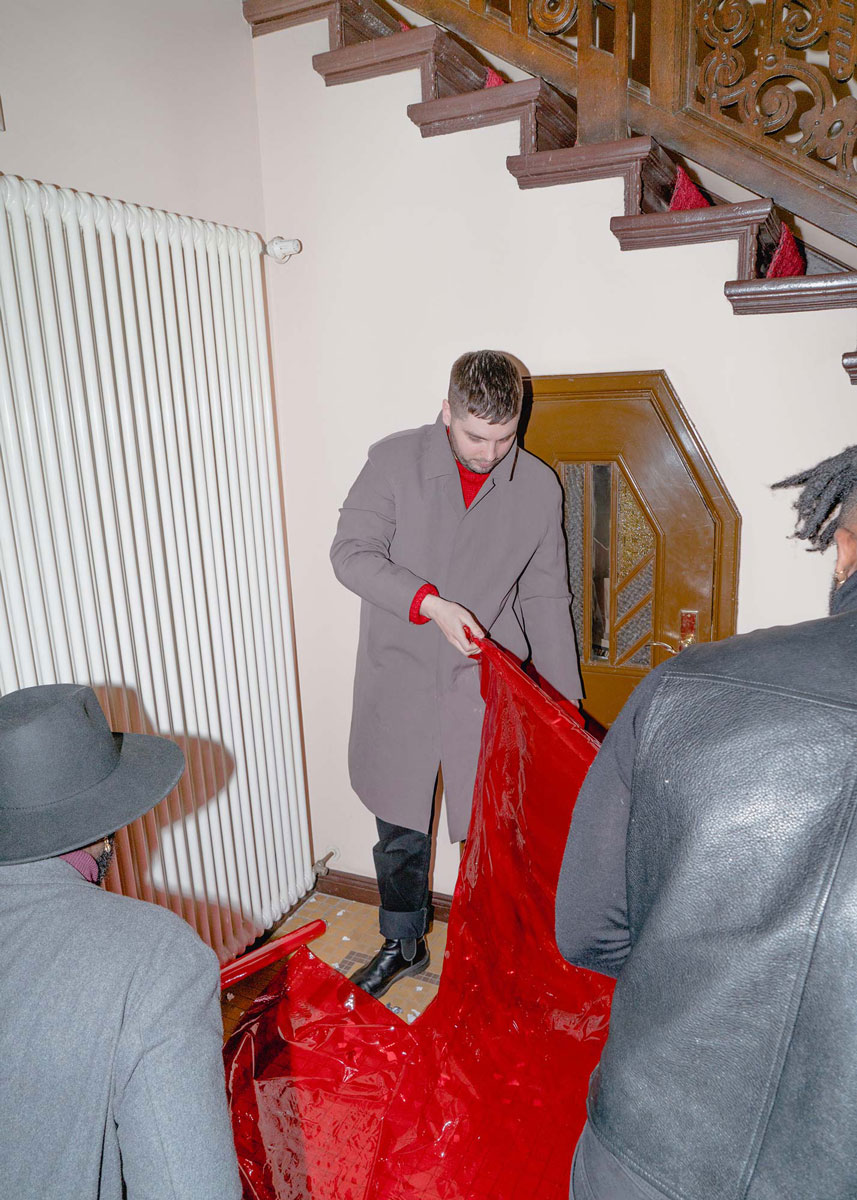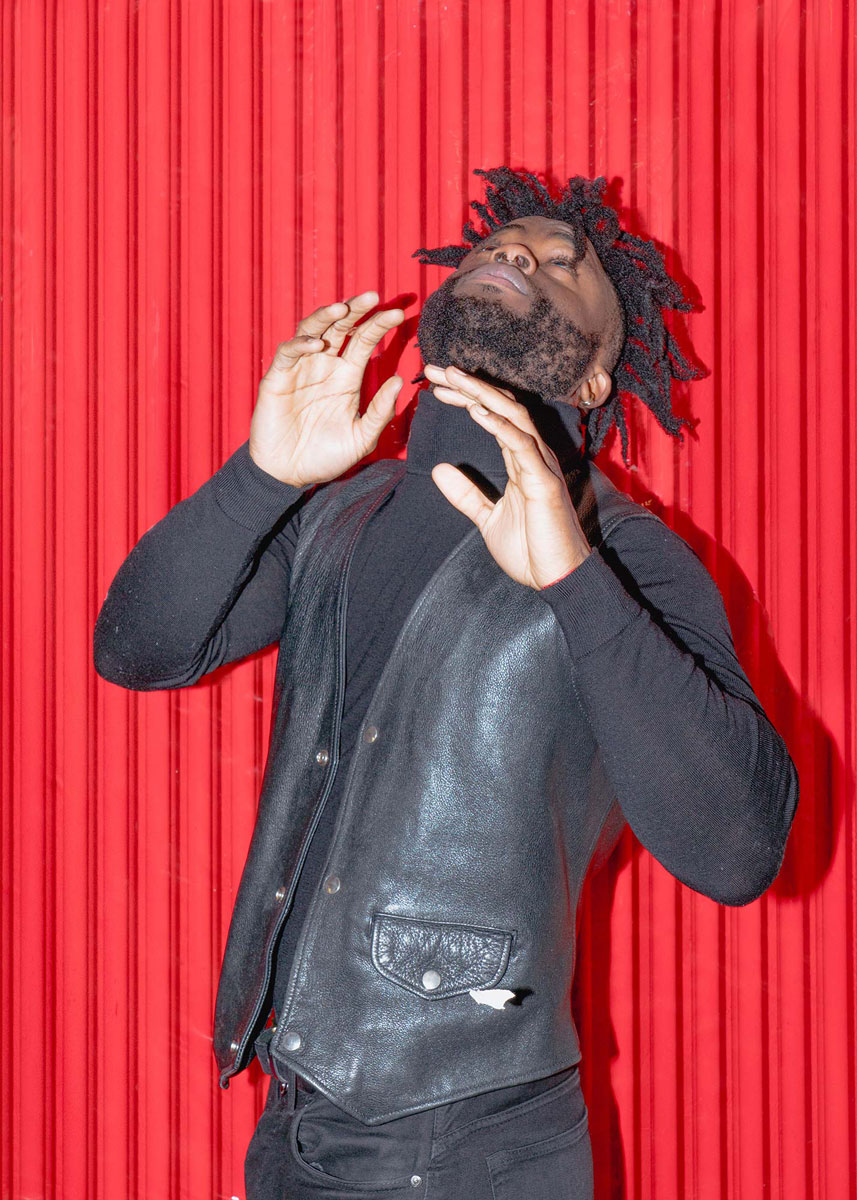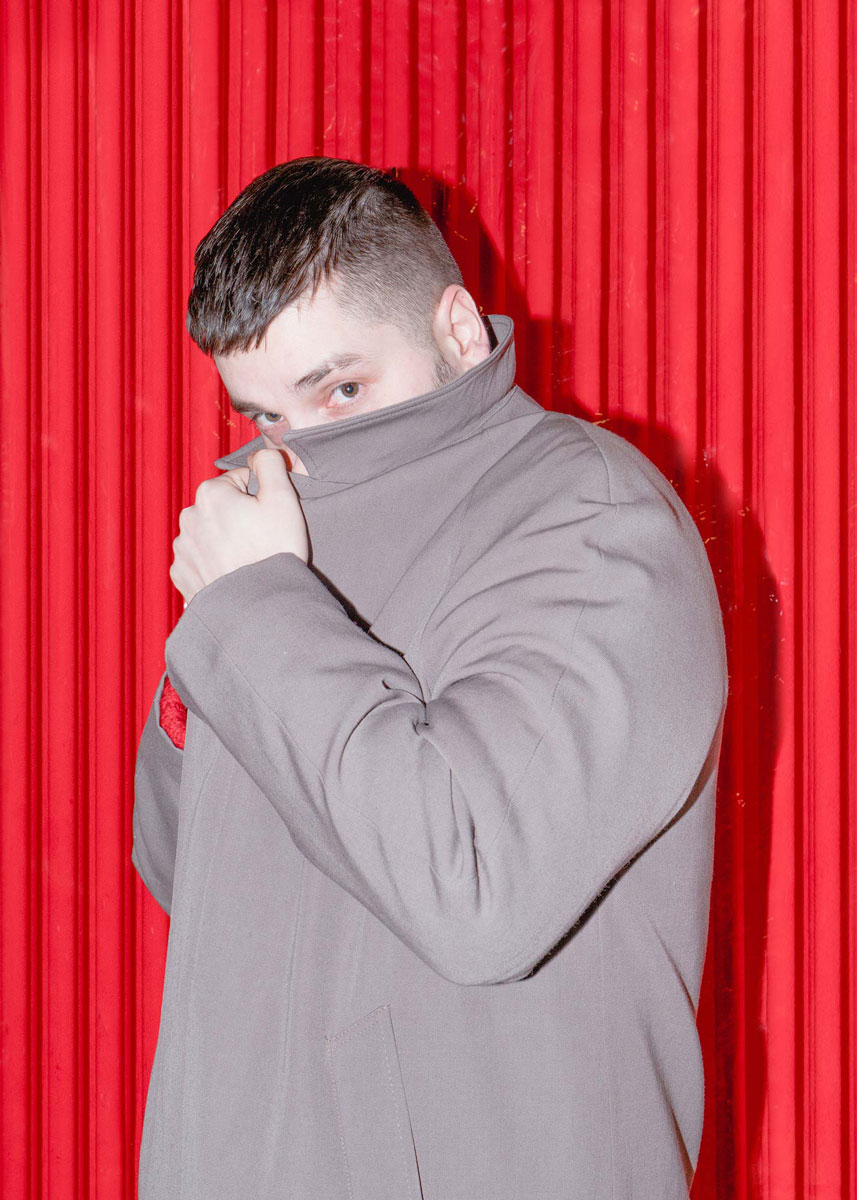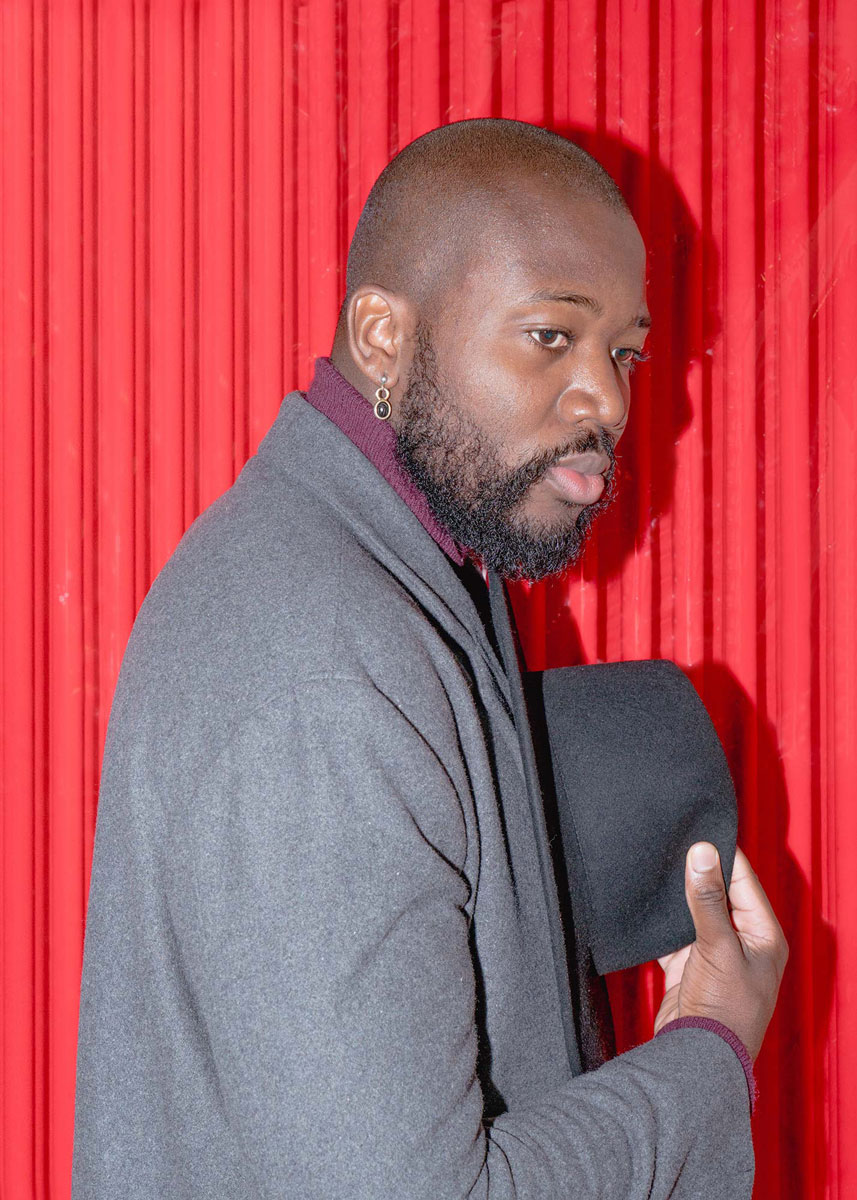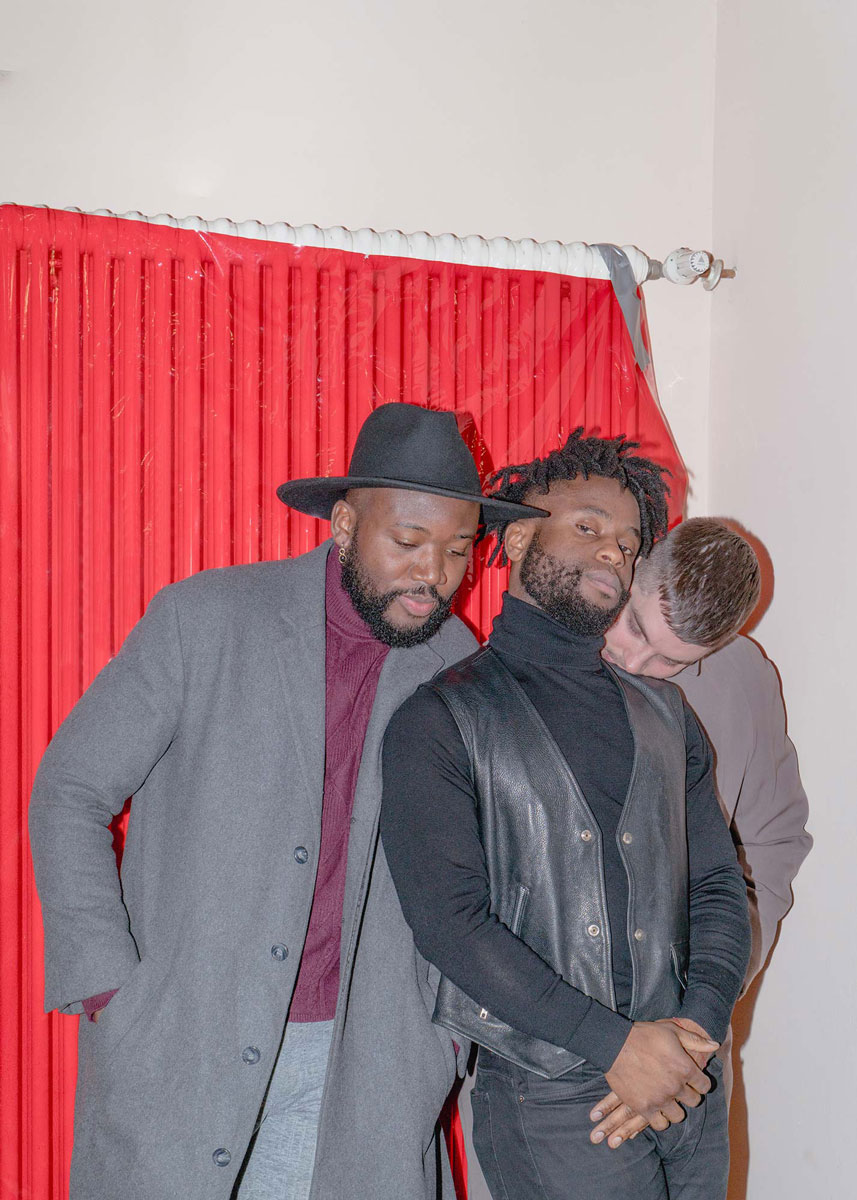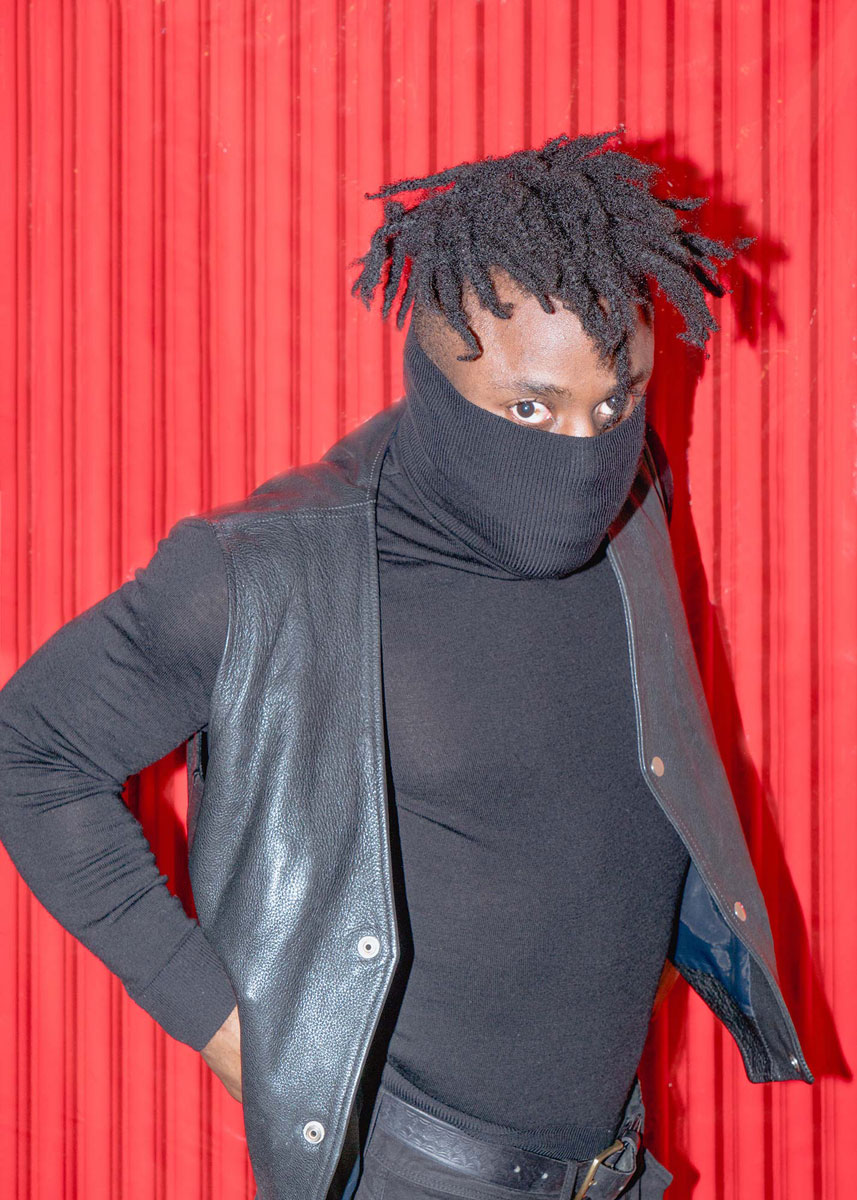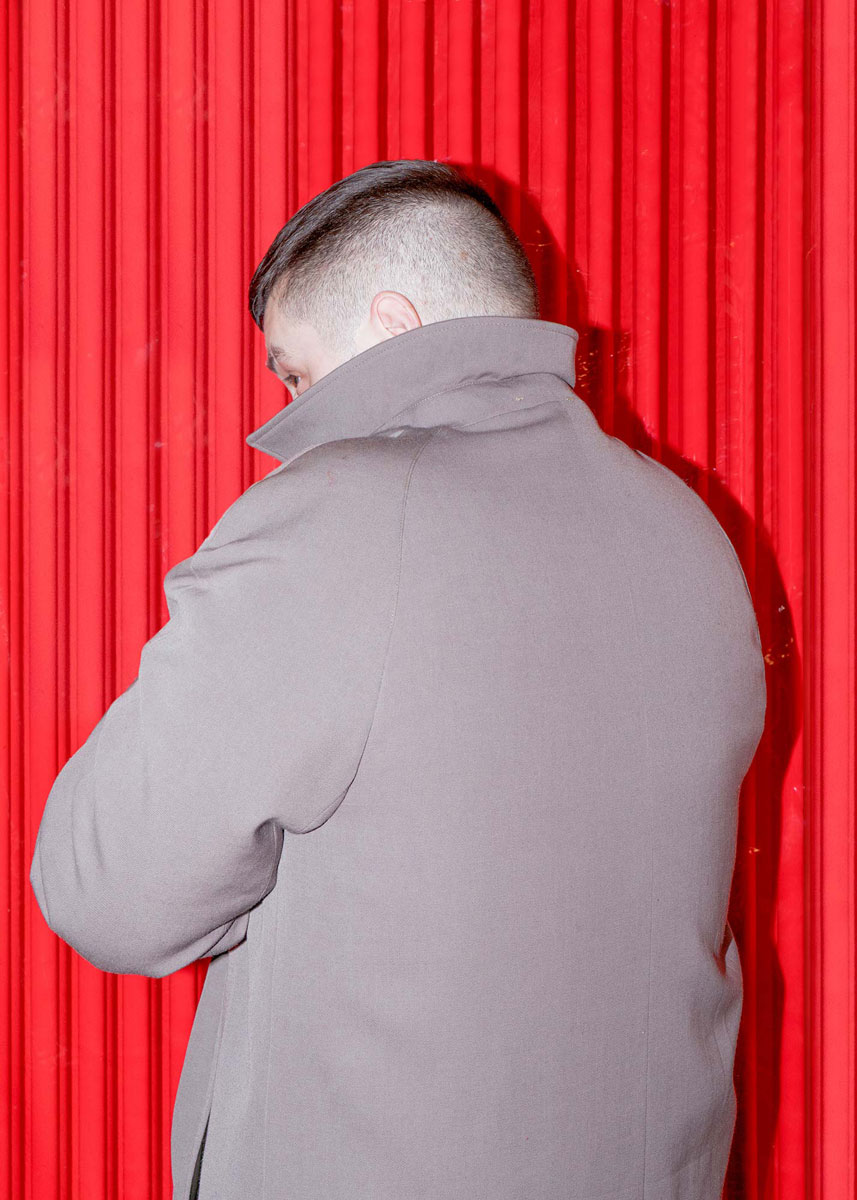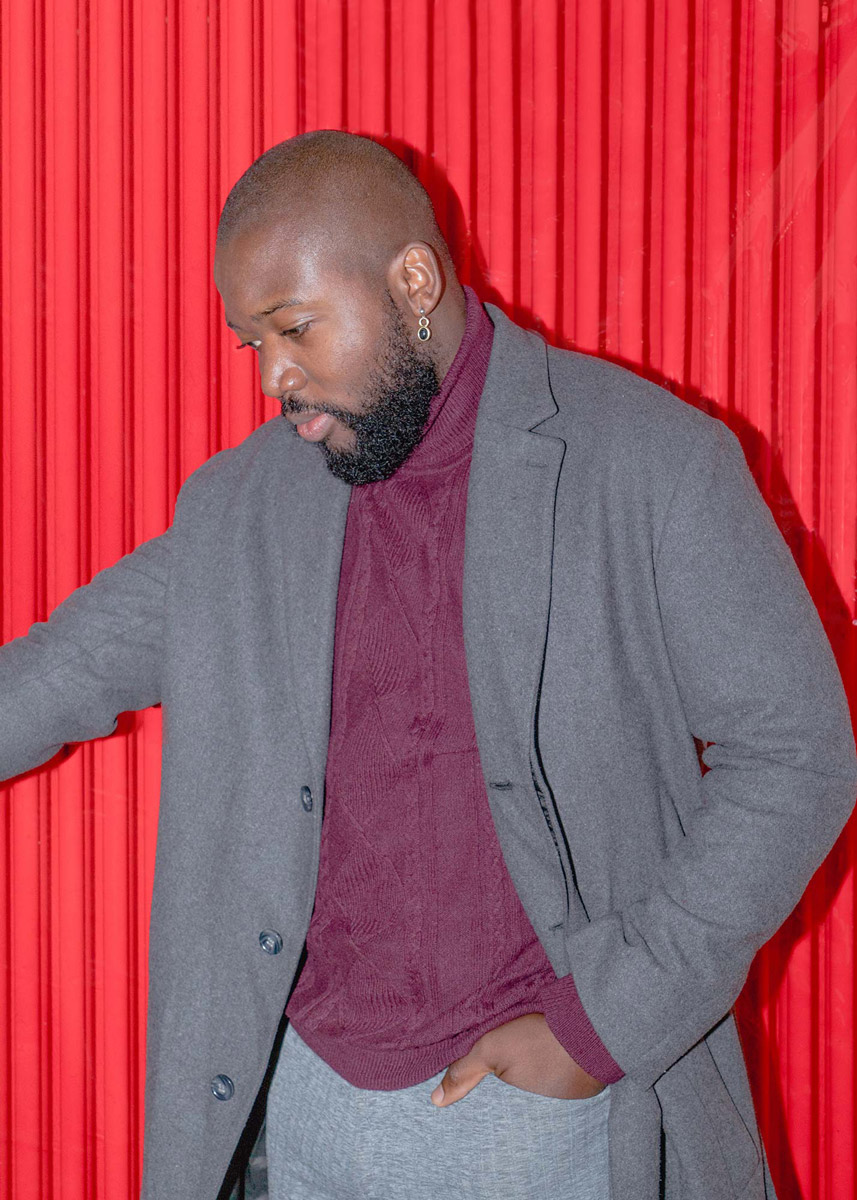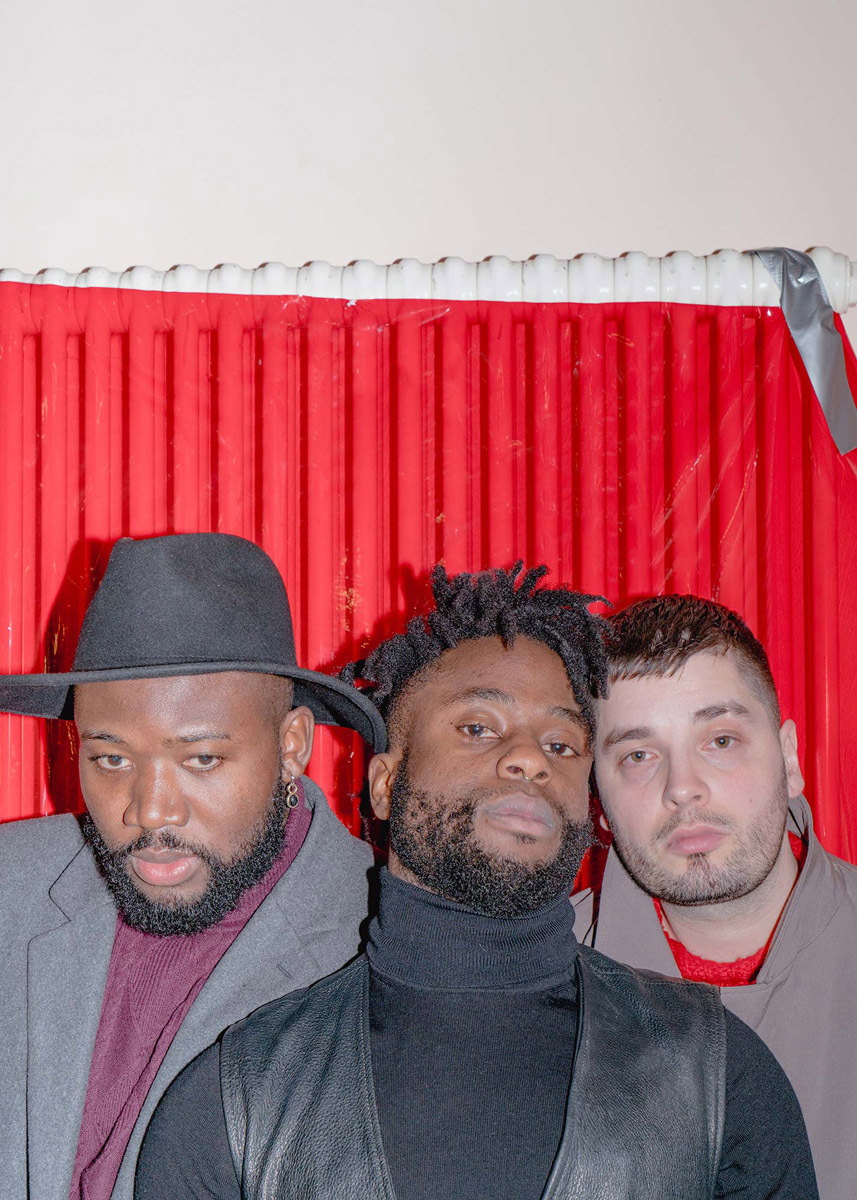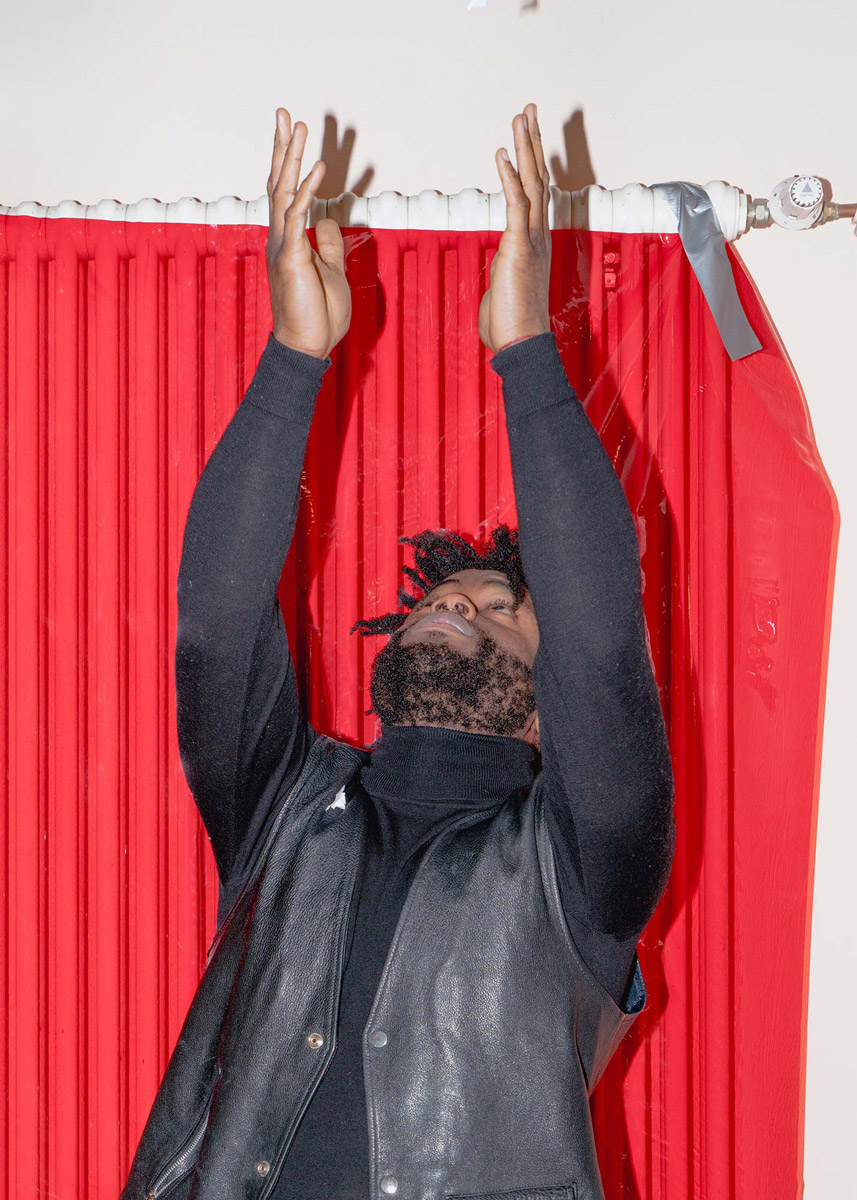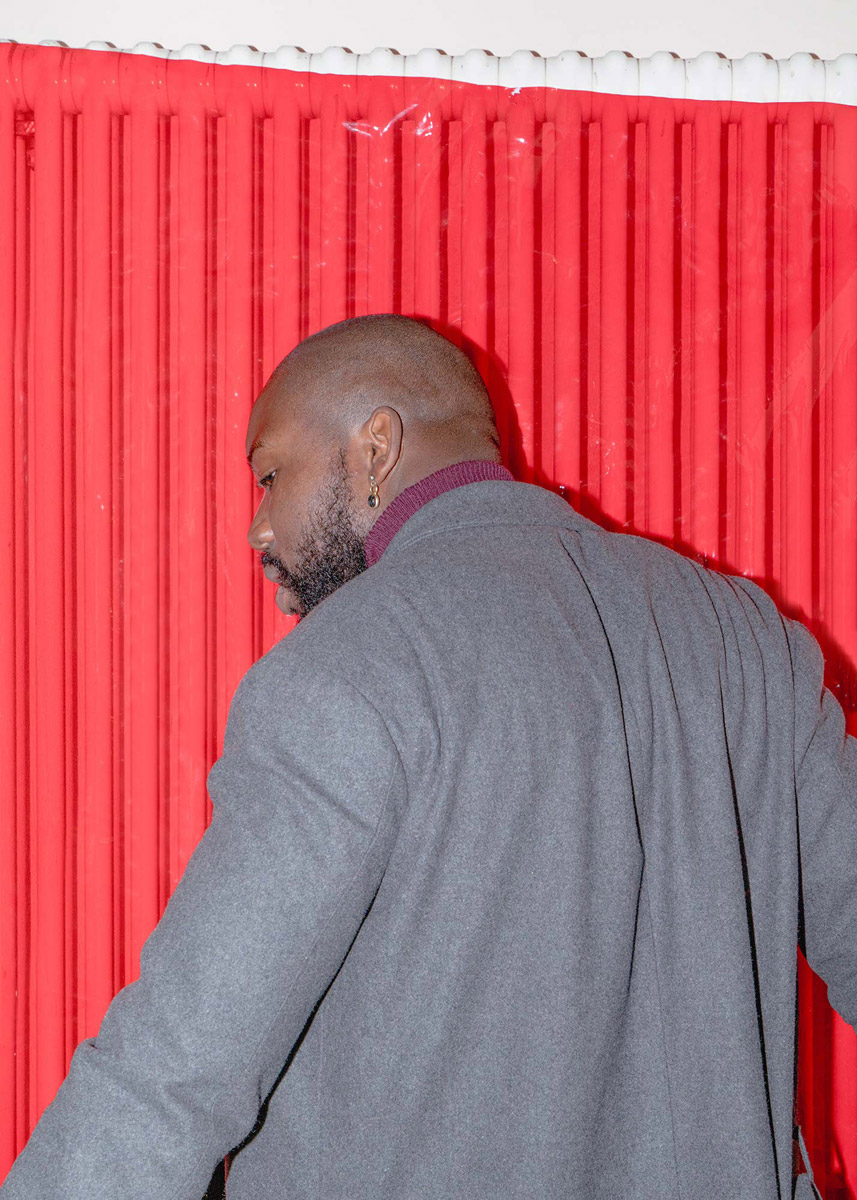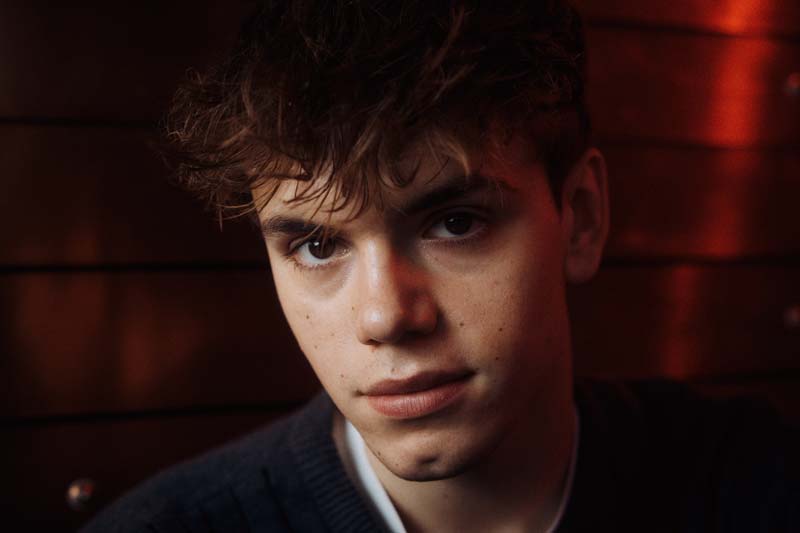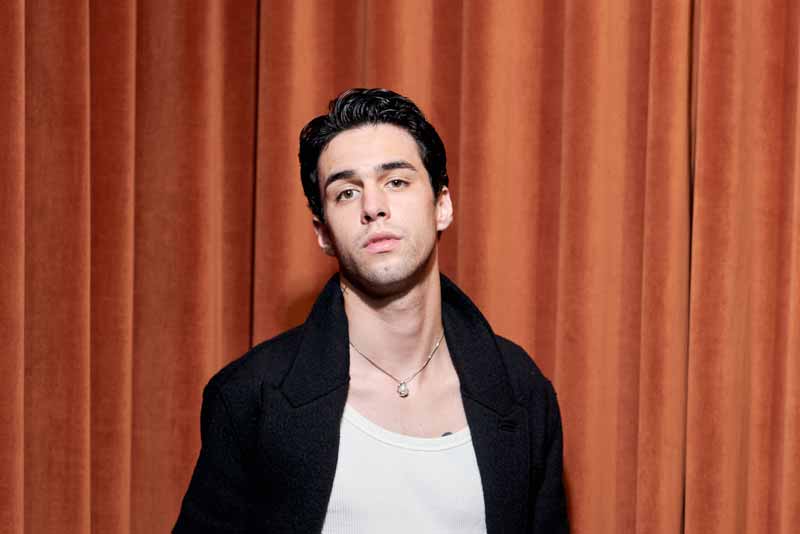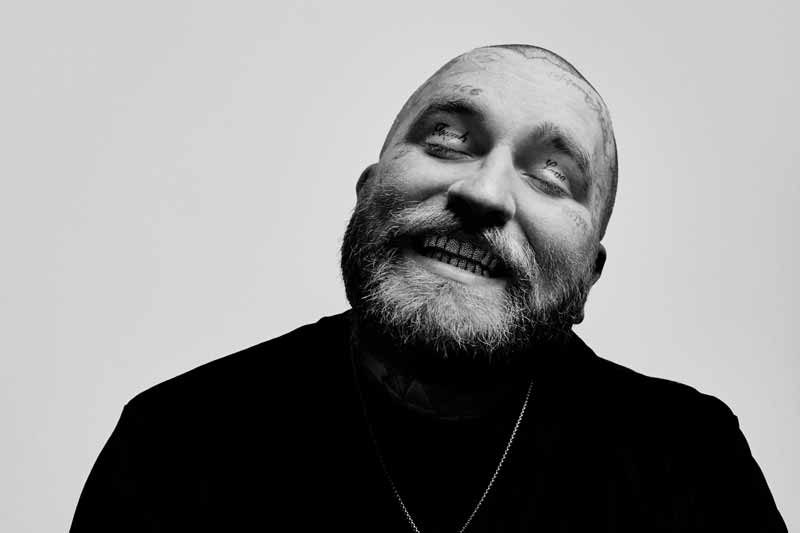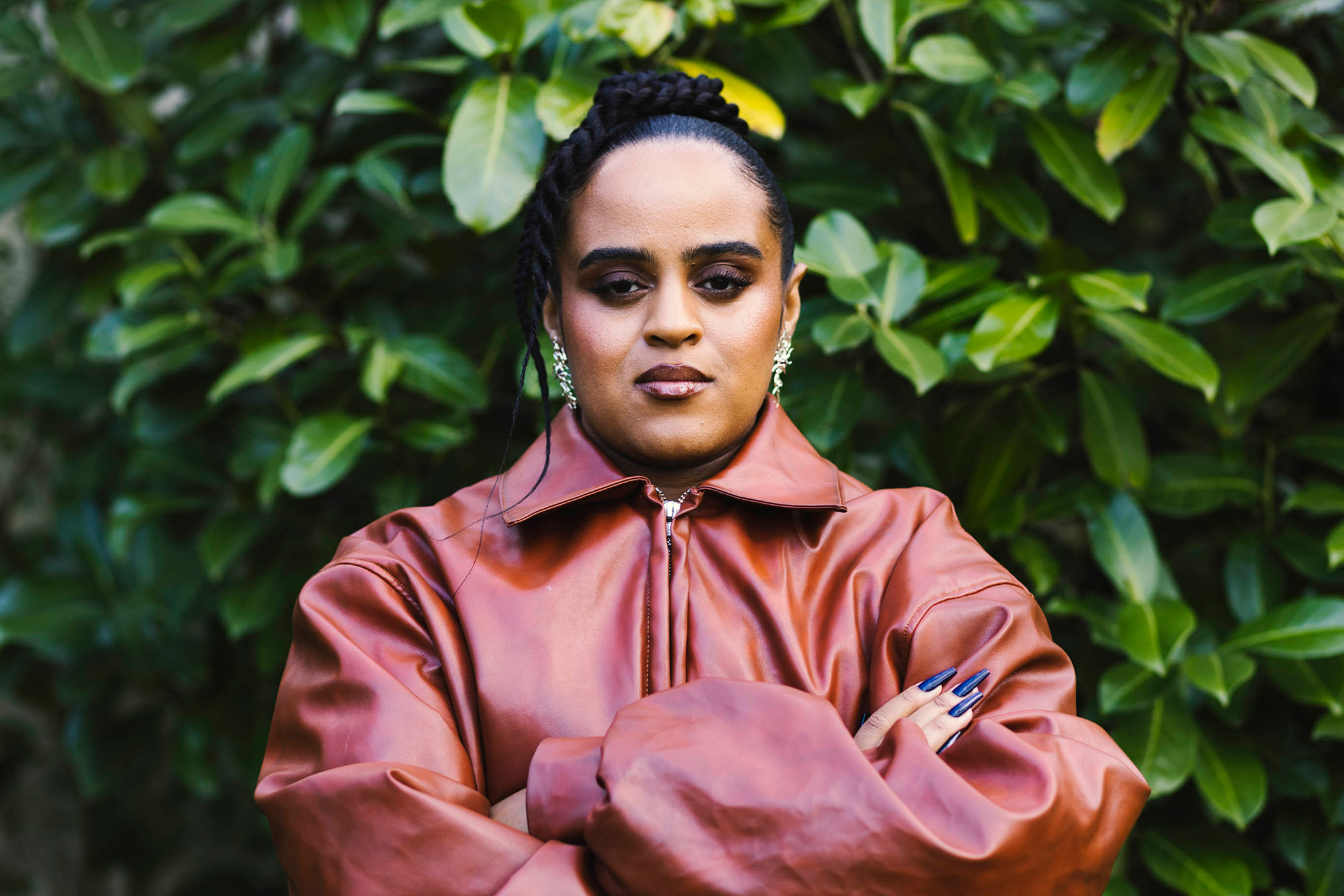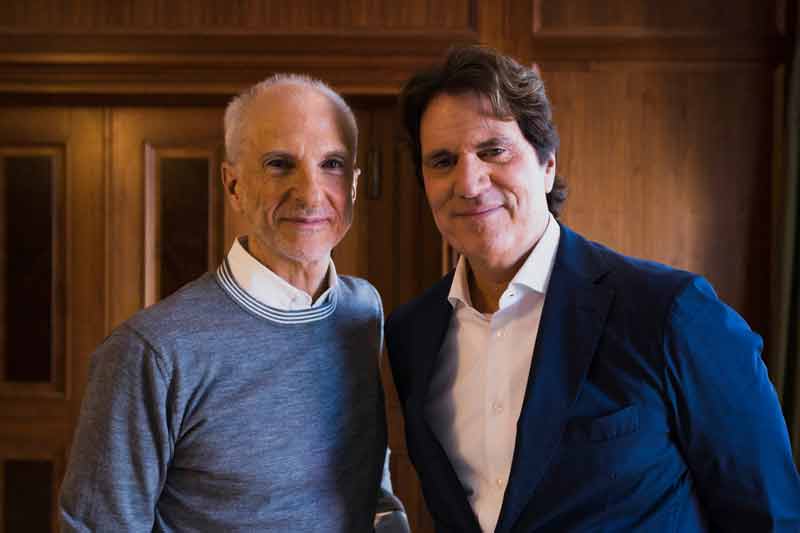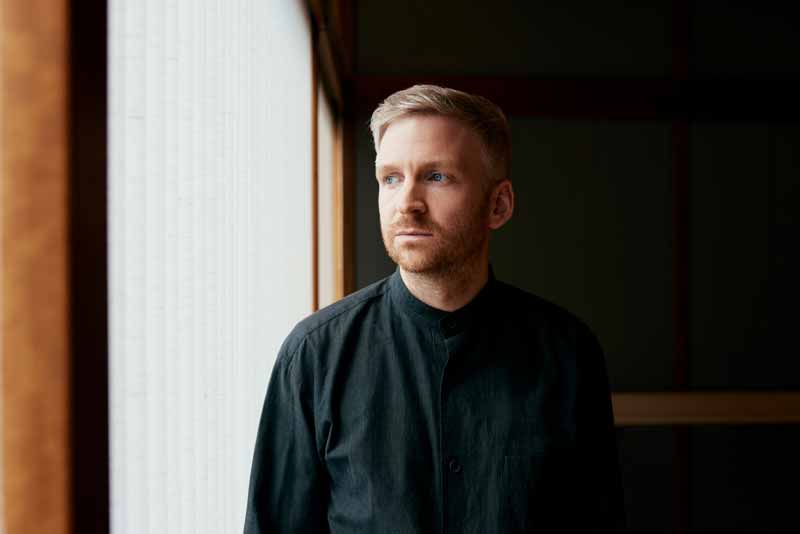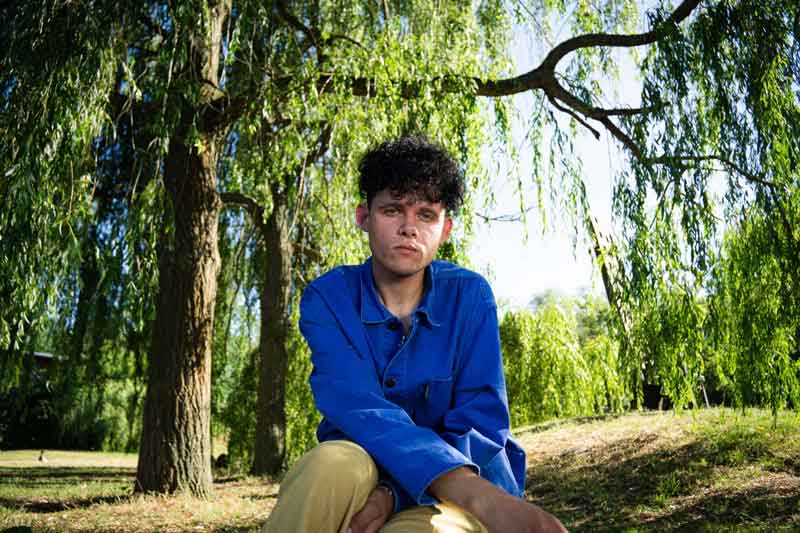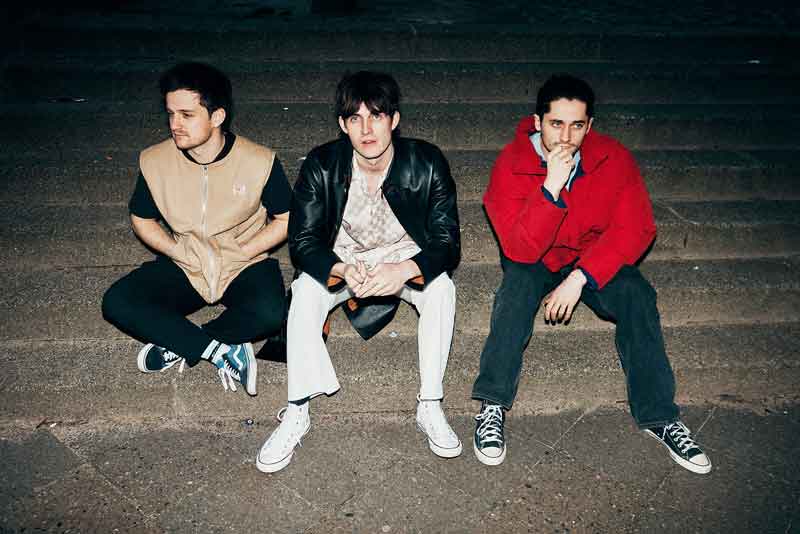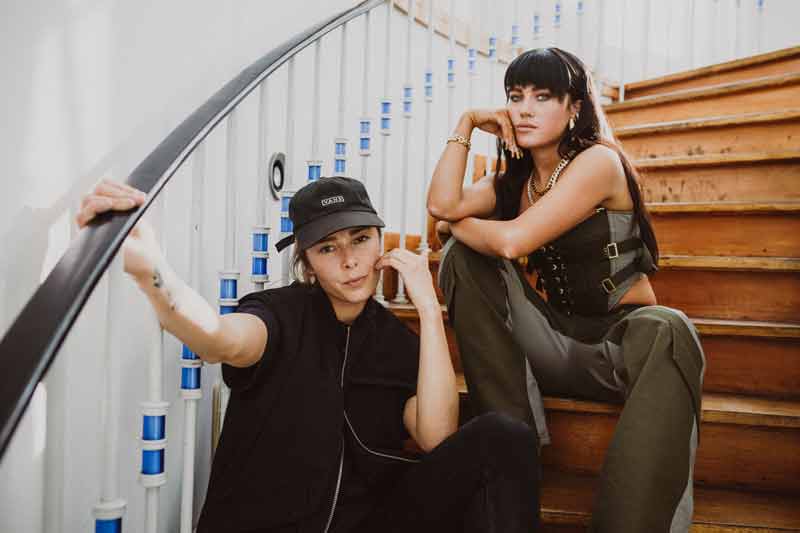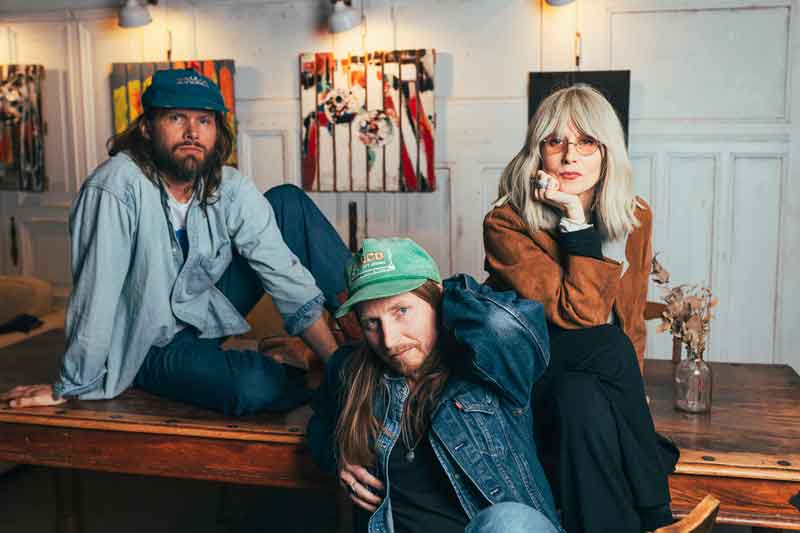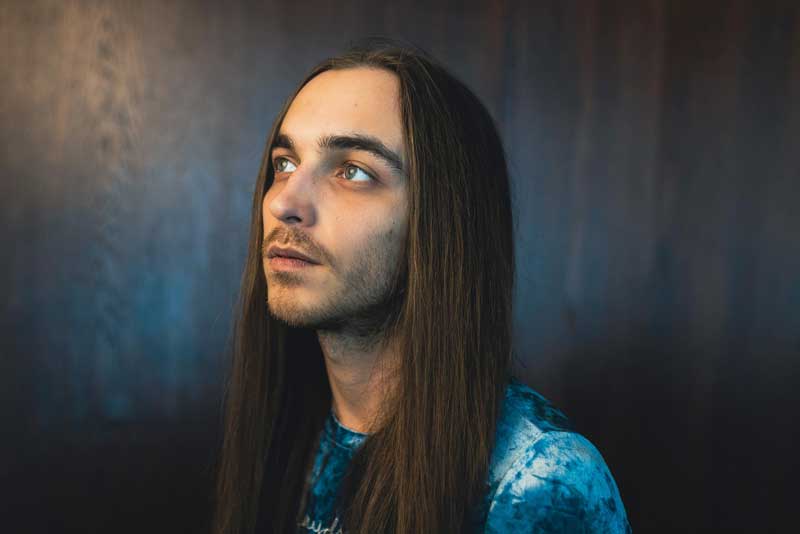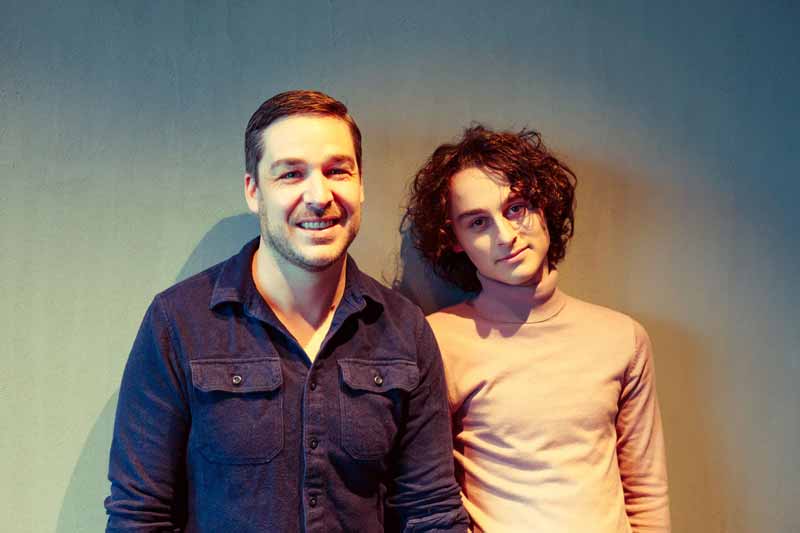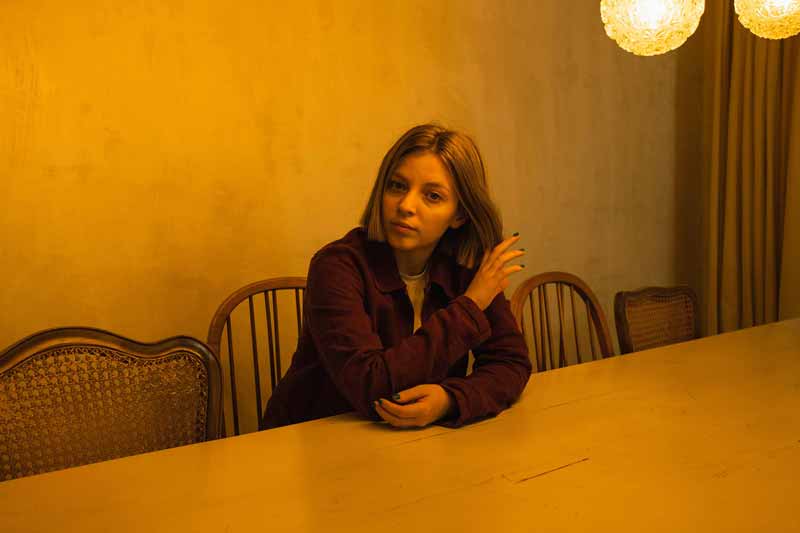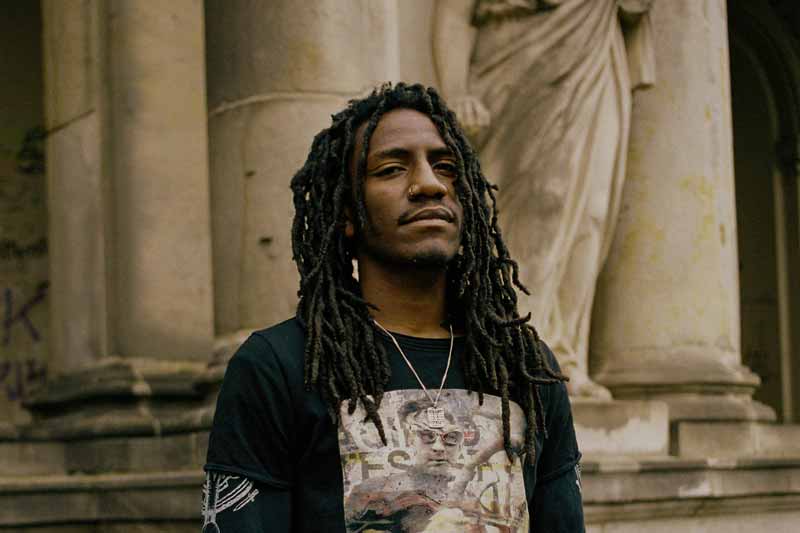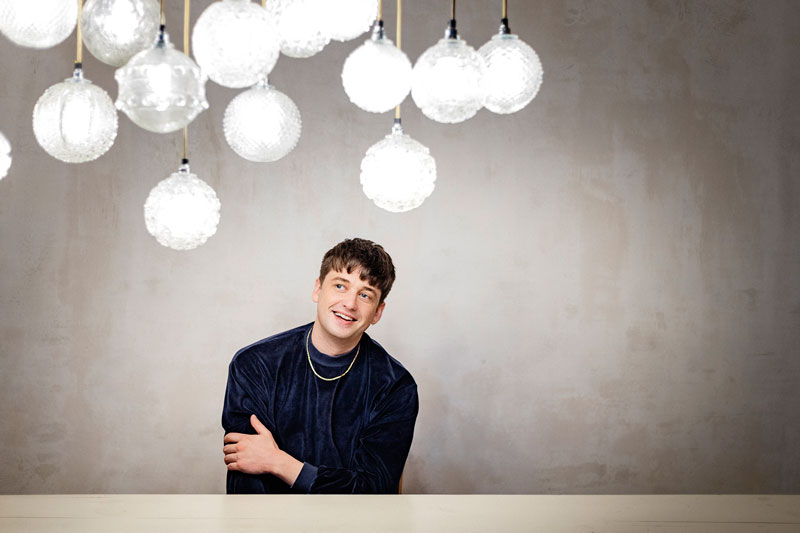Interview — Young Fathers
A Constant Tug Of War
Already known for their experimental sound, Young Fathers have once more managed to create something unique with their new LP »Cocoa Sugar«. Three albums in, they still don't submit to any norms, even after having tried really hard to be nothing but just normal.
8. März 2018 — MYP N° 22 »Resistance« — Interview & Text: Christina Heckmann, Photography: Moritz Jekat
Back in 2014 Young Fathers came into the limelight with their Mercury Prize win for their debut album “Dead”, while their follow up “White Men Are Black Men Too” established them as an unconventional band with mass appeal. Big markers on their journey are the many collaborations with Massive Attack, being heavily featured on the “T2: Trainspotting” soundtrack and touring around the world for years.
Once the traveling stopped for a while, Kayus Bankole, Graham ‘G’ Hastings and Alloysious Massaquoi settled back into their hometown Edinburgh to put their experiences into music. The outcome is called “Cocoa Sugar” and it surprises with every song and its distorted sounds. Consisting of tracks that are catchy enough to be liked at the first listening, they then get hold of you even more once you dive in deeper: There is no getting out. Merging all musical influences that are out there, making it impossible to pinpoint: From rock, pop, hip-hop, afrobeat, grime, experimental hip-hop, traditional pop, world music, you name it, it’s in there, it’s in them.
Resisting against being labeled seems to come naturally to Young Fathers, an organic development to subvert expectations with every move. Open to addressing sensitive issues related to race, the music industry, politics, religion, Young Fathers don’t shy away from showing critical attitudes. One might imagine three aggressive guys on a mission, but even though they are constantly taking people out of their comfort zones, they are at the same time turning it into a good experience.
After all, they just want to have a good time while staying true to themselves and who they are: Three guys from Edinburgh just making some music. May as well bring the power to talk about social and political issues back into pop music along the way.
Christina:
When I heard about MYP’s current topic being “Resistance”, I immediately felt Young Fathers were perfect for this. You are opposing forces in the music industry while managing to reach masses by making pop music after all. You are creating unique sounds that are still accessible. With your new album, you have done that again. I recall with “White Men Are Black Men Too”, your last album, you specifically went out there and tried to make a pop album. How did it go this time?
Alloysious:
That was our first attempt at applying pop sensibility and staying true to ourselves, with “White Men Are Black Men Too”. Having a marriage of those two. During that time, we were on the road a lot and would listen to stuff on the radio. There was a sense of songs being driven, and we liked that, we tried to apply that to the record. This time I feel like we succeeded in whatever notion that we had initially. This time we were just more self-aware about things, how the industry works, how we are as people, individually and as a group, what our strength and weaknesses are. In this whole creative sphere, weaknesses become strengths. In a way, this is a foolproof recipe, you can always take something away from any situation and turn it into something else. We love to subvert, and it was a continuation of that process from the previous works in combination with the newfound confidence.
»You know what's right from the get-go. It's all within you.«
Christina:
Did you find any new approaches for this album?
Alloysious:
This time around we had a lot more time at home in Edinburgh, seeing friends and family, just being regular people, just enjoying the mundane stuff. That was the balance that was needed after a period of touring for like five, six years. You get that injection of reality, it adds and feeds to grow something inside of you. You get to the point where you are ready to go back in and do a new record. In general, you always have an idea about things and then we create triggers, words, phrases, films, pictures, conversations, all these stories in the back of your mind or written down in your phone. Gather it, gather it, experience, gather it, and then, when we go into the studio we don’t talk about it, it just comes through. You know what’s right from the get-go. It’s all within you. You do it, you release it, you walk away from it, proud and happy about having been able to let it out. The process after that is being able to talk about it and understand it in hindsight, looking at it from different perspectives.
Christina:
You got a lot of recognition from the music industry, which, I imagine, certainly gives you confidence going into the recording stage. At the very least for the fact that you know the album will be heard because people will be eager to check it out. Compared to the early beginnings of any newcomer, you don’t have to fight to get listeners anymore.
G:
True, you start to appreciate that more.
Kayus:
I think the fight never ends though, to be honest. I doubt that we all feel complacent about a couple of ears. It’s just a new stage that we’re at, where we have more ears than we did before, especially compared to when we did the Tapes. (Editor’s note: EPs “Tape One” and “Tape Two”)
G:
At this point, we have built up a fan base of a bunch of people that love you for whatever you are and that’s great. We are very aware though that to stay relevant and to be able to be here and do interviews, you have to make an effort. It is always a struggle to try and get more people involved. There is so much music out there that is great but hardly gets heard. So, the fight never stops, to be able to keep doing that.
Christina:
Do you feel pressure to create something that the industry will consider worth spreading?
G:
Not at all for the industry, but more for ourselves. We got bored after touring for so many years and generally, we always get bored with what we have done before. That’s where you get the pressure to do something new, to create something new. And we had time to go home, time to reevaluate everything. The new album was meant to be more linear, more normal because we had not done that before. The title “Cocoa Sugar” is a play on something bittersweet, because we were trying to question this concept of us being strange. When we came up with our plans for the album, we thought we just wanted it to be normal. Especially because our perception as a band is always so fucking strange, we can never fucking be normal. No matter how hard we’d try. But in a way, it also doesn’t even mean anything.
»I like everything to be a glorious fucking free fall.«
Kayus:
That was a fucking challenge for me personally. That’s the bitter part of it. Bursting out of the tour bubble. There is always this abundance of ideas when you’re on tour. And, when you come back, there is so much excitement of going into the recording process again, you want to put it all out there. But then you have to be strict on yourself. Eliminate all the shape. All the fluff. All that is unnecessary within it. And I don’t like that. I like everything to be a glorious fucking free fall.
Christina:
People always struggle to define you and your music. Do you find it difficult to stay in the realm of indefinability and do you intentionally try to resist against being labeled?
Alloysious:
No, it’s honestly not very hard for us. That’s just the way we are.
Kayus:
A bunch of mad cunts.
(Everyone laughs)
G:
Like we noticed when working on this album, it is actually harder for us to be a straight-in-the-line band and be normal.
»We naturally have that filter within, that when we come across something that has been done before, we want to go against it.«
Alloysious:
We naturally have that filter within, that when we come across something that has been done before, we want to go against it.
G:
Why the fuck would we want to do something that has already been done before? We push against that.
Kayus:
That’s the resistance part.
Alloysious:
Also, there is a lot of resistance when you have created something as a band and two members like it, but I, for example, don’t. I then have to find a new approach to it and see it from their perspective and go against my initial feeling.
G:
It’s not resistance though, that’s us being contrary in nature.
Kayus:
It is resistance, man!
G:
But resistance sound so negative, it is actually too enjoyable to call it resistance.
Kayus:
True, there is so much excitement in this process. Maybe we’re just excitement junkies and constantly want to explore that feeling. It’s like a constant tug of war.
Alloysious:
Whatever, I think it’s resistance. (Everyone laughs) Let’s just go against the connotation of what it is. There is this push and pull factor, even just within our relationships. Agreeing, disagreeing, compromising. Resistance. And also, acceptance.
Kayus:
That is all there, but it is just another aspect of it all.
G:
The way our songs come together is in a very forward moving way, our energy is going that direction.
Christina:
You said you consider yourself a political band.
Alloysious:
Did we really say that?
G:
Yeah, we did. Sometimes we would consider ourselves a political band, some days we personally differ. We also don’t really have a choice in this, as we do not get to define ourselves. We just are as a band who we are as people and as soon as you are moving within the industry you get put on sides.
Alloysious:
You say no to one thing and then everybody considers it a political stance.
Christina:
Just as it happened with the BDS issue. You withdrew from last year’s “Pop-Kultur Berlin” to protest the festival’s acceptance of sponsorship from the Israeli embassy.
G:
I think people look at us thinking about these things in a certain way, but our approach is actually quite pure. We’re just people and when something doesn’t feel right, you decide not to do it.
Christina:
Again, do you feel people are trying to put a label on you?
G:
It’s in people’s nature to try and simplify things. The reason why we’re a bit uneasy this political frame is that we don’t want to have an aggressive take on it. We’re not overtly political, but of course, we try to make people think about things. The smartest way to include people is by showing them how we feel in the form of a pop song. They might sing along and think about the words.
»We are very aware that whatever we do as a pop band, in the grand scheme of things is still a very minute thing.«
Christina:
If it doesn’t solve the problem, it opens a public discussion about it and raises awareness at the very least.
G:
Yes, you try to get people to understand things themselves. We are very aware that whatever we do as a pop band, in the grand scheme of things is still a very minute thing.
Christina:
Even if it is small in the scheme of things, it does give you a certain kind of power though.
G:
Of course, it does. It’s a little tiny increment, but of course, it is still worth it.
Kayus:
Generally, the topics we deal with are topics that we want to talk about, the things that interest us. On this album, there is a lot of character imagination going on. We tried to imagine to our best abilities what some evil bastard thinks like. We tried to imagine what it feels like to be trampled on. We’re not waving the finger at people and say what is bad and what is good, we are just presenting it and bring it to the forefront so that people can decide for themselves.
Alloysious:
We are saying: Think about it and let’s have that conversation. We want to engage in them. No matter how difficult they are. Worth mentioning though, in discussions sometimes our answer is also that we just don’t know.
»As an artist, you're always on a pedestal. Sometimes I just want to be able to say: I don't know. I don't have the answer.«
Christina:
That should be totally acceptable as well.
Alloysious:
Because as an artist you’re always expected to have all the answers and opinions. You are always on a pedestal. Sometimes I just want to be able to say: I don’t know. I don’t have the answer.
Kayus:
Yes, sometimes we don’t want to talk about things. Sometimes we just want to dance.
More about Young Fathers:
young-fathers.com
facebook.com/youngfathers
instagram.com/young_fathers
More about photo artist Moritz Jekat:
moritzjekat.de
facebook.com/moritzjekat
instagram.com/moritzjekat
